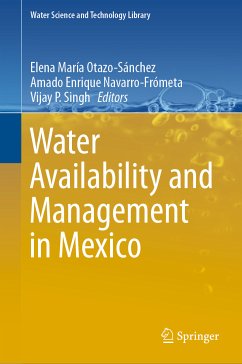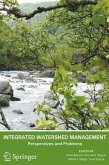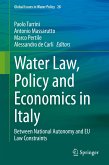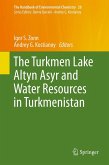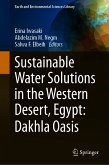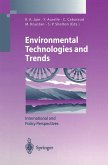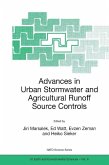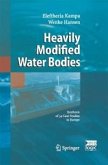Water availability in Mexico is polarized, with abundant rainfall and large rivers in the south, and desert-like conditions in the north. The central region, which is the most industrialized, is overpopulated. Mexico City pours millions of cubic meters of "blackwater" into the northern valley daily and receives its clean water from the south. To address these unsustainable conditions, the world's 4th biggest water treatment plant went into operation in 2018.
The water infrastructure and governance must satisfy the demands of all sectors, including agricultural, urban, and economic activities. At the same time, water resources are affected by drought, and climate change puts constraints on the supply. As such, regulation and monitoring are important when it comes to adherence to agreed plans and priorities.
The book is divided into four sections. 1: Water Availability discusses quantitative aspects, such as supply, methods of calculation, and fracking. 2: Water Quality highlights pollution risks and diagnosis of water resources. 3: Water Allocation examines the sectoral demands and vulnerability due to unsustainable irrigation. 4: Water Management and Governance focuses on laws, urban rules, national parks, planning, and integrated water resources management, among other topics.
The chapters include illustrative case studies in Mexico, such as basins, cities, reservoirs, and aquifers, water supply demand assessment, planning, and management.
Dieser Download kann aus rechtlichen Gründen nur mit Rechnungsadresse in A, B, BG, CY, CZ, D, DK, EW, E, FIN, F, GR, HR, H, IRL, I, LT, L, LR, M, NL, PL, P, R, S, SLO, SK ausgeliefert werden.

